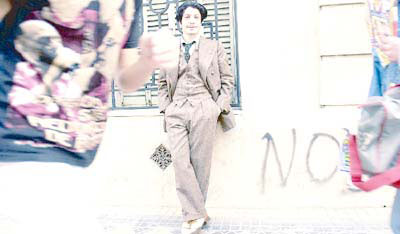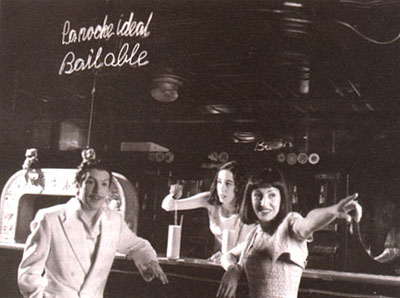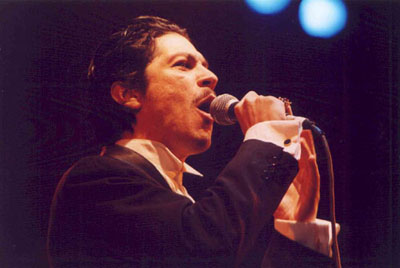SERGIO PANGARO
PEOPLEText: Gisella Lifchitz
It’s a cold rainy afternoon and I enter the traditional bar 36 Billares in Buenos Aires downtown. He’s there, sitting at one of the tables, close to the window and just before I come in, he gazes at his watch with a sleepy look. It is colder than usual in BA, and while everyone is returning home, we are about to start our interview.
Sergio Pangaro is a “portenio” singer and composer. Although his favorite music style is lounge, and his favorite rhythms are Bossa Nova, cha cha cha, rumba and swing, he recreates our deepest local roots through his intelligent thoughtful lyrics. Here, everybody likes to define him, confining him to fit into shallow and light archetypes. He can’t. It is useless.

Why do you sing?
I sing because the voice is the vehicle of literature. Books are magical, they are perpetual present. I love music, and you can carry your voice with you everywhere you go. In a reunion, there is music when someone sings.
I started to sing as a child because I was pupil in a religious school. Children happen to be very successful in every familiar event when they practice some form of art. Then I realized that I had to learn a lot to become an artist like those who I admired.
Do you take singing classes?
Yes, of course. My teacher is former opera singer Margarita Kenny. She teaches me her experience in a non-existent world, the world of opera in the fifties in Vienna, Austria. The music that was top at the sales rankings was actually the best music. That used to be normal until the arrival of pop music.
If you could choose an ideal place and time, which one would it be?
Opera world in Europe, from 1920 to 1960. And the fifties in Argentina. I like that time because of the honor codes, and the importance of a man’s word. Everything was more enjoyable and moderate, men didn’t fight against each other and friendship was more important than money.

Pangaro and Baccarat perform every Saturday at a local place called “Club del Vino” (Wine Club) and they also introduce their show in parties and corporate presentations. There is a surreal cohabitation between their critical lyrics and their easy-listening music. They seem to be beyond contemporary music and just feel comfortable in a retro style that allows them to act subversive. The best of all is that some people don’t even notice the trick and fall deep into the subliminal scene.
“We have two kinds of audiences: one of them appreciates our art and ideology, and the other sees us as a cocktail party group. These are our two areas of expression. The sound we choose is just a way to express what we want to sing. You have to know what you are singing, that is what transcends time. We can fool a certain audience. They expect to hear a quiet Bossa Nova but we’re telling them something else.”

Was there an evolution in your lyrics?
There has always been a close up to bolero from our actual reality. It is naif to blame a woman that abandons you for your pain. I then tried to incorporate self help literature, psychoanalysis, and start seeing romance and pain from another point of view, a more subtle one. Last year, with the social crisis in Argentina, our language became more radical. So our lyrics changed and brought back a way of writing, typical of our counterculture of the seventies. We talk about hippies and social protest, and there is also a song about “express kidnapping”, which unfortunately has become very usual in our country these days.
Read more ...





